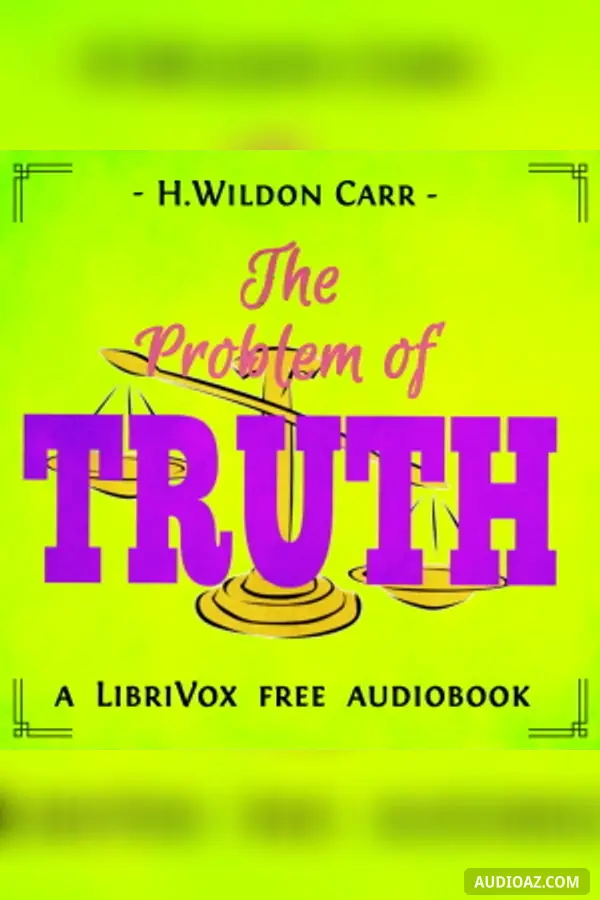
《The Problem of Truth》 - 免费有声读物
语言:English
1 / 9Physics and Metaphysics
- 1. Physics and Metaphysics
- 2. Appearance and Reality
- 3. The Logical Theories
- 4. The Absolute
- 5. Pragmatism
- 6. Utility
- 7. Illusion
- 8. The Problem of Error
- 9. Conclusion
关于
A problem of philosophy is completely different from a problem of science. In science we accept our subject-matter as it is presented in unanalysed experience; in philosophy we examine the first principles and ultimate questions that concern conscious experience itself. The problem of truth is a problem of philosophy. It is not a problem of merely historical interest, but a present problem—a living controversy, the issue of which is undecided. Its present interest may be said to centre round the doctrine of pragmatism, which some fifteen years ago began to challenge the generally accepted principles of philosophy. In expounding this problem of truth, my main purpose has been to make clear to the reader the nature of a problem of philosophy and to disclose the secret of its interest. My book presumes no previous study of philosophy nor special knowledge of its problems. The theories that I have shown in conflict on this question are, each of them, held by some of the leaders of philosophy. In presenting them, therefore, I have tried to let the full dialectical force of the argument appear. I have indicated my own view, that the direction in which the solution lies is in the new conception of life and the theory of knowledge given to us in the philosophy of Bergson. If I am right, the solution is not, like pragmatism, a doctrine of the nature of truth, but a theory of knowledge in which the dilemma in regard to truth does not arise. But, as always in philosophy, the solution of one problem is the emergence of another. There is no finality. (Preface)
评论
成为第一个评论的人
此内容还没有任何评论。开始对话吧!
查看更多
标签: The Problem of Truth audio, The Problem of Truth - Herbert Wildon Carr audio, 现代 audio, 非小说类 audio, 哲学 audio, free audiobook, free audio book, audioaz






